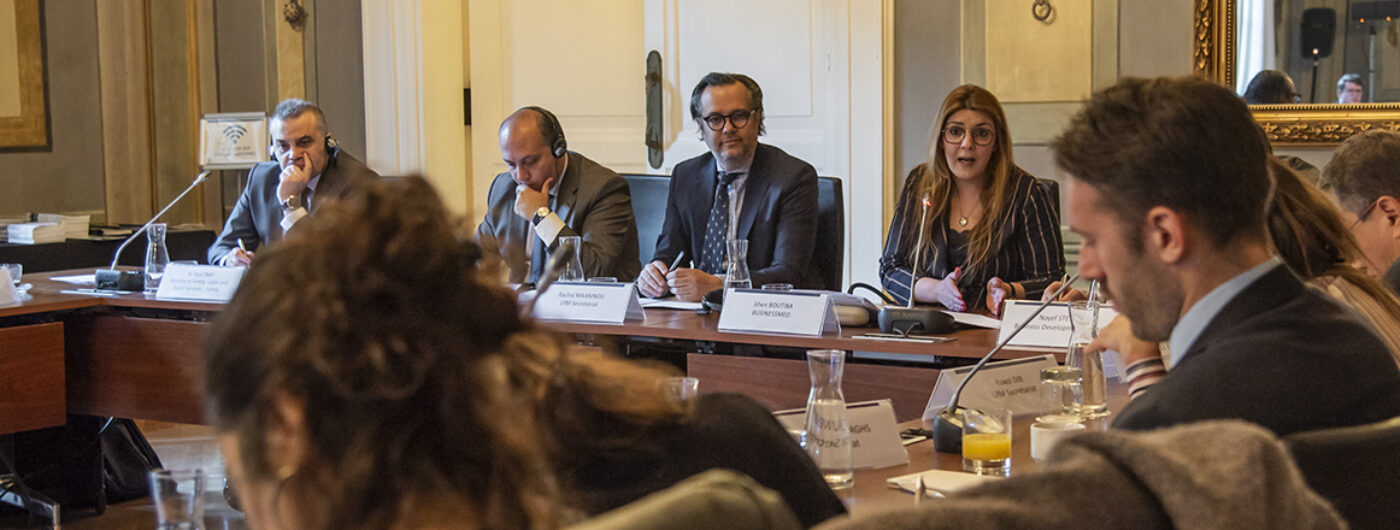
The UfM joins the efforts for promoting the transition from informal to formal employment
- Around 2 billion people around the globe work informally, most of them in emerging and developing countries, including a 68.8% in the Arab World.
- The absolute majority of these workers do not enjoy social protection, rights at work or decent working conditions, which seriously hampers the sustainable and inclusive development efforts on the ground.
- Most people end up in the informal economy not out of choice, but out of need in the absence of any other viable and decent alternative that would protect their rights in a properly-functioning labour market.
- The UfM Secretariat joins the regional and global efforts aiming at accelerating the transition from informal economy to formal employment, adopting the principles of Decent Work and actively addressing the labour-related challenges in the UfM Region.
Barcelona, 18 March 2019. Acting upon the UfM Ministerial mandates and in line with the UfM Roadmap’s emphasis on ensuring the contribution of UfM activities to regional stability and human development efforts, the UfM Secretariat organized a Workshop on Informal Business Integration at its premises in Barcelona on 18 March 2019. The Workshop focused on two interrelated thematics, namely the Role of Social Dialogue and the Protection of Women, Young People and Vulnerable Groups in a context of informality.
The Workshop brought together multiple stakeholders from different sectors across the labour market and the employment landscape to exchange views and experiences, share best practices and lessons learned, and present recommendations on how to tackle the transition to formal economy using multidisciplinary and integrated approaches. Perspectives from international organizations, public administrations, NGOs, private sector representatives and social partners were presented throughout the Workshop.
The challenge of transition from informal economy to formal employment is one that affects both shores of the Mediterranean. In addition to presenting a hurdle to the Sustainable Development Goal of Decent Work (SDG 9), it clearly gets in the way of inclusive development. Around 2 billion people around the globe work informally, most of them in emerging and developing countries, including a 68.8% in the Arab World. The escalating migratory pressure witnessed by many countries in the UfM region over the past few years added to the urgency of this challenge, whereas the predominantly heterogeneous character of informal economic activities contributes to the difficulty of formulating a standard solution.
While there are best practices that can inspire integrated approaches to tackling the informality issue, the economic, political and socio-cultural specificities of each country call for a tailored remedy and for a reinforced multi-stakeholders dialogue.
“Social Dialogue in its different modalities plays a fundamental role in reducing the share of informal economy and addressing its many ills,” stated Rachid Maaninou, the UfM Deputy Secretary General for Business Development and Employment. “There is a need to involve the informal sector into structured social dialogue alongside other social partners to ensure equal footing representation and advocacy.”
